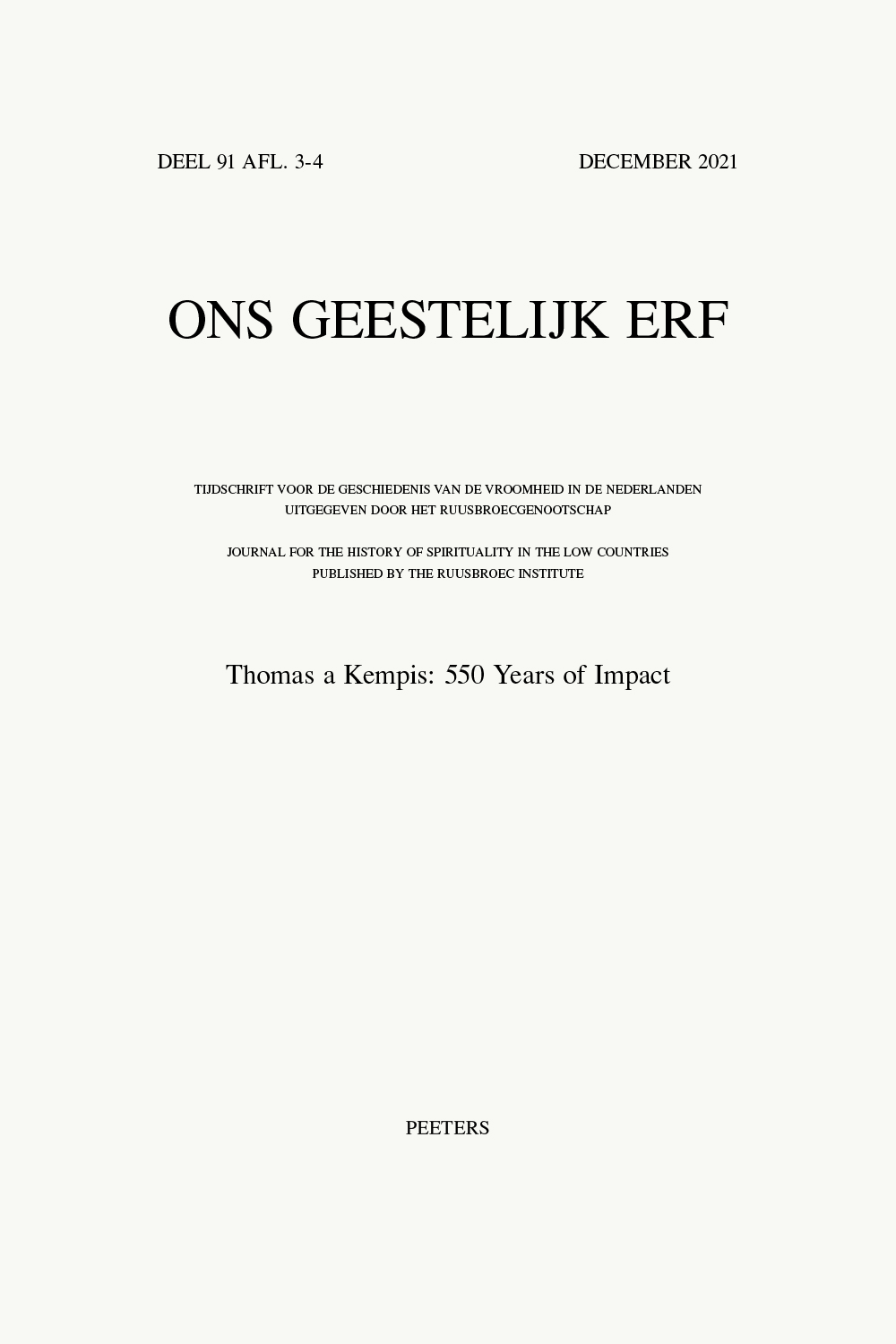 previous article in this issue previous article in this issue | next article in this issue  |

Preview first page |
Document Details : Title: Teksten op reis Subtitle: Handschriftelijke getuigen van betrekkingen tussen Brabant en Bovenrijn in de veertiende eeuw Author(s): JONKER, Esther Journal: Ons Geestelijk Erf Volume: 83 Issue: 3 Date: September 2012 Pages: 243-263 DOI: 10.2143/OGE.83.3.2182883 Abstract : The manuscripts Brussels, Koninklijke Bibliotheek, 3067-73 and Paris, Bibliothèque Mazarine, 920 consist of several booklets. The text of three booklets in the Brussels manuscript (all dated ca. 1350) are glossed by one hand, which added German translations of some Middle Dutch words. This is also the case in one booklet of the Paris manuscript (dated 1350-1375). In another booklet of the Paris manuscript (no. VII, dated 1325-1350), several hands have added six Middle High German and eleven Latin texts on the blanks following the Middle Dutch texts on the first pages. The German (and Latin) additions all date from the second half of the fourteenth century. Kwakkel and Scheepsma have argued that the five Middle Dutch booklets with German additions probably all made a journey from Brabant (their place of origin) to the Upper Rhine region (the dialect in which the German texts are written) and back again (around 1400 the five booklets belonged to Rooklooster, near Brussels). The author of this paper argues that this is a plausible story only for the seventh booklet of the Paris manuscript. The booklet contains full texts in the Upper Rhine dialect, which fit thematically very well in this region (devotion of St. John and the Seven Words from the Cross). This hypothesis is further strengthened by the reception of the German translations of the Middle Dutch texts in the booklet. These translations were also available at the Upper Rhine. Although the five booklets cannot all be situated in an itinerary to the Upper Rhine and back, they share enough similarities to situate them in one literary network stretching from Brabant to the Upper Rhine. Within this network of kindred spirits people sometimes address each other as ‘friends of God’ (‘gottesfreund’ or ‘gottesfriend’). The booklets probably are rare witnesses of the kind of manuscripts that played a part in such contacts. |
|


